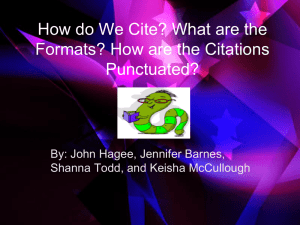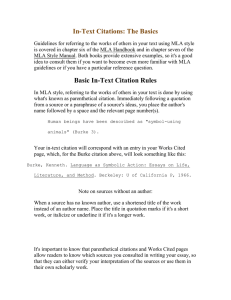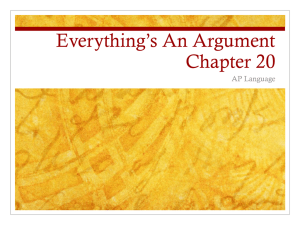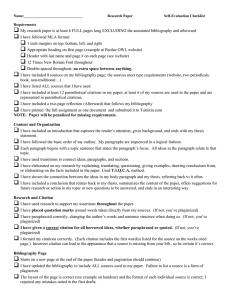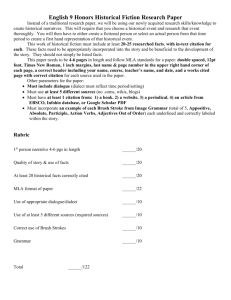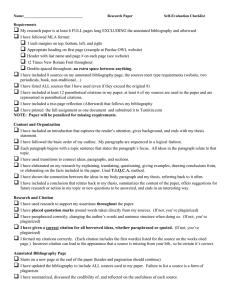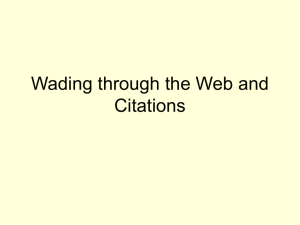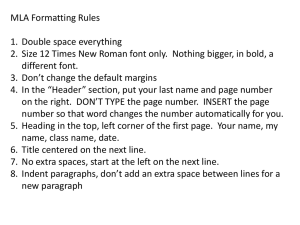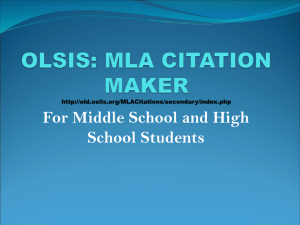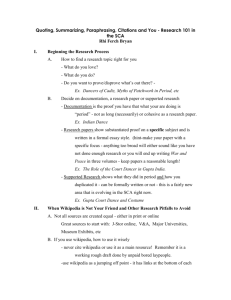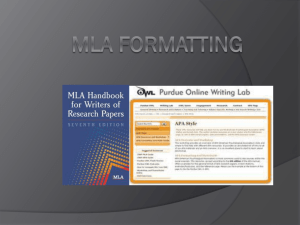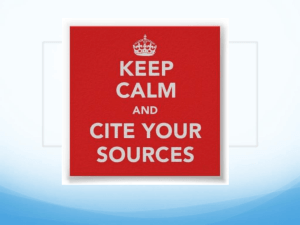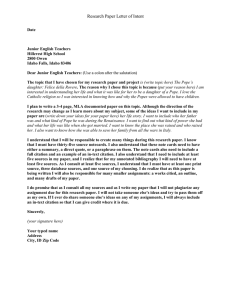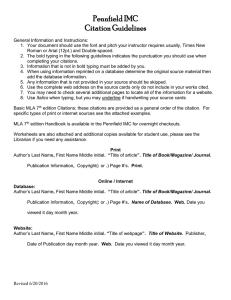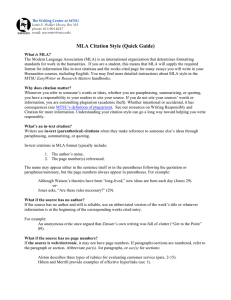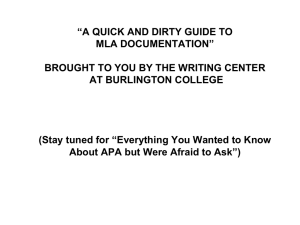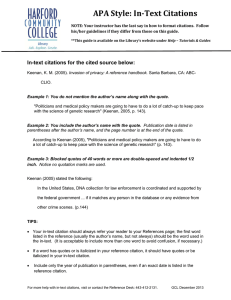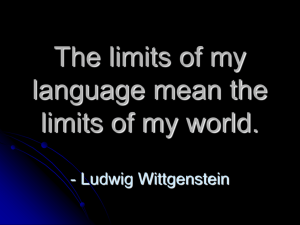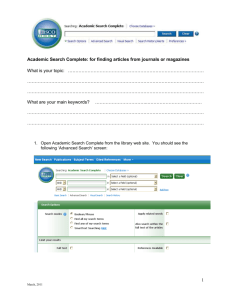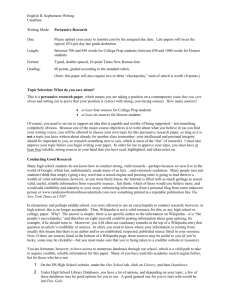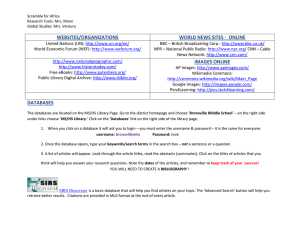Research Paper Vocabulary List
advertisement
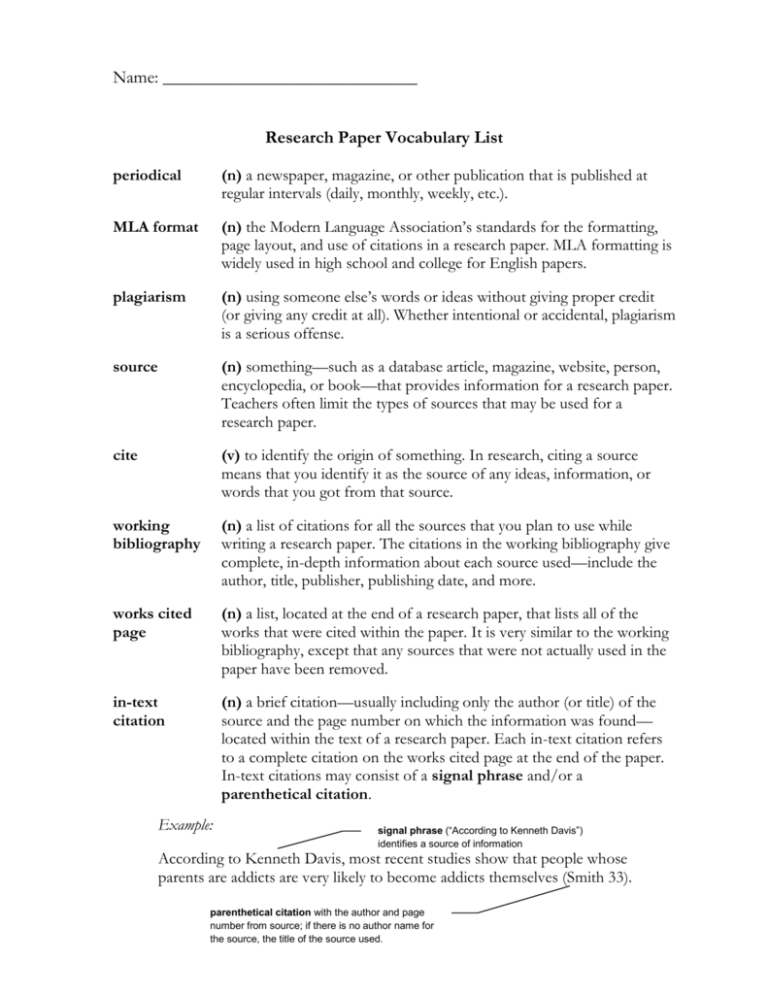
Name: _____________________________ Research Paper Vocabulary List periodical (n) a newspaper, magazine, or other publication that is published at regular intervals (daily, monthly, weekly, etc.). MLA format (n) the Modern Language Association’s standards for the formatting, page layout, and use of citations in a research paper. MLA formatting is widely used in high school and college for English papers. plagiarism (n) using someone else’s words or ideas without giving proper credit (or giving any credit at all). Whether intentional or accidental, plagiarism is a serious offense. source (n) something—such as a database article, magazine, website, person, encyclopedia, or book—that provides information for a research paper. Teachers often limit the types of sources that may be used for a research paper. cite (v) to identify the origin of something. In research, citing a source means that you identify it as the source of any ideas, information, or words that you got from that source. working bibliography (n) a list of citations for all the sources that you plan to use while writing a research paper. The citations in the working bibliography give complete, in-depth information about each source used—include the author, title, publisher, publishing date, and more. works cited page (n) a list, located at the end of a research paper, that lists all of the works that were cited within the paper. It is very similar to the working bibliography, except that any sources that were not actually used in the paper have been removed. in-text citation (n) a brief citation—usually including only the author (or title) of the source and the page number on which the information was found— located within the text of a research paper. Each in-text citation refers to a complete citation on the works cited page at the end of the paper. In-text citations may consist of a signal phrase and/or a parenthetical citation. Example: signal phrase (“According to Kenneth Davis”) identifies a source of information According to Kenneth Davis, most recent studies show that people whose parents are addicts are very likely to become addicts themselves (Smith 33). parenthetical citation with the author and page number from source; if there is no author name for the source, the title of the source used. quote (v or n) to write, word-for-word, what someone else said or wrote. When quoting someone: use quotation marks use a signal phrase to identify the source cite the source that you got the words from (an article, etc.) paraphrase (v or n) a restatement of what someone else said or wrote. A paraphrased statement uses different words than the original, but has the same essential meaning. Here is a example: the statement “I’m flat broke” can be paraphrased as “I don’t have any money." The voice of the writing has changed, but the essential meaning of both sentences is the same. summarize (v) to condense the content of a passage of writing. When you write a summary of something, you re-create (in your own words) its main idea. By definition, a summary is shorter than the original work.
